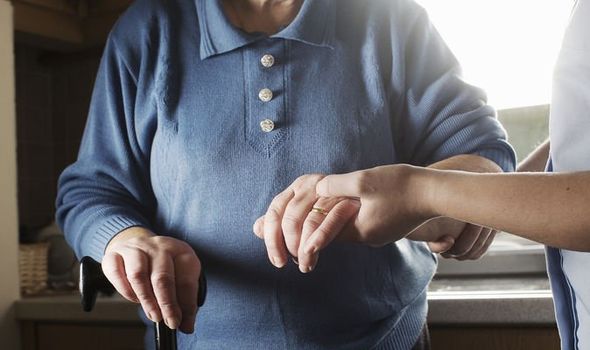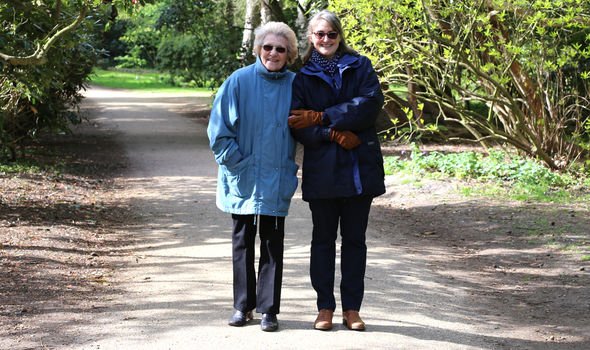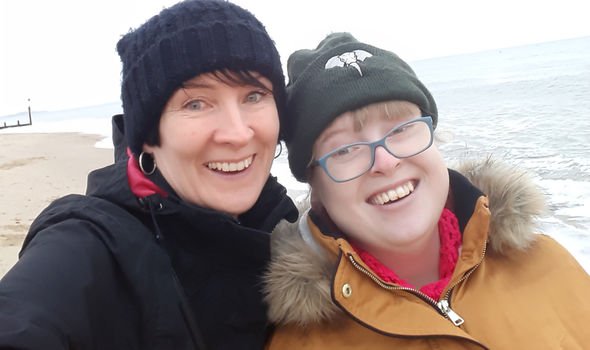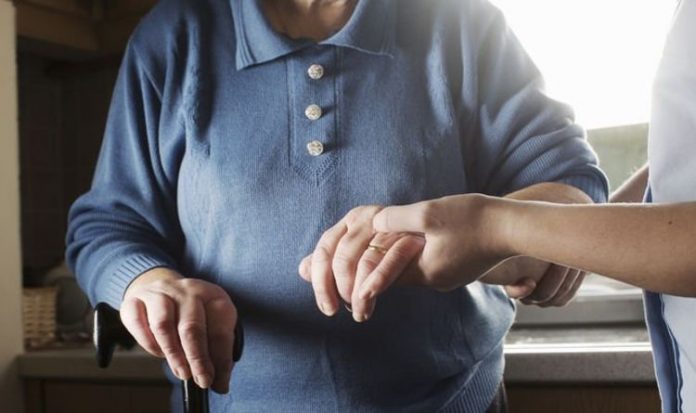Kate Middleton gives thanks to parents and carers
One in five of its 5.6m cable subscribers in the UK is taking care of a disabled child, sick spouse or frail parent – around 1.2m people. And they are seven times more likely to be lonely than the average person with 58 per cent admitting they have felt isolated from friends and family with no one to talk to. The pandemic has compounded these problems as carers struggle with closed respite services, difficult to access doctor appointments and no opportunities to meet other people outside their households.
Now the digital technology group and the charity Carers UK are launching a £2m partnership which aims to end the loneliness carers experience by making it easier to connect carers to each other and their communities.
There are around 6.5m informal carers in the UK saving the taxpayer billions of pounds a year in health and social care costs.
Helen Walker, Chief Executive of Carers UK, said: “Carers are the pillars of our health and social care systems, often providing round the clock care for older and disabled relatives at a huge cost to their own finances and personal health.
“They save the UK state £132bn every single year in the unpaid care they provide.
“This pandemic has put huge additional stress on them, with 81 percent of carers taking on more care and 64 percent telling us they haven’t been able to take any breaks whatsoever since the crisis started.

More than a million of Virgin Media customers are unpaid carers for loved ones (Image: Getty )
“They are worn out and exhausted, many also feeling lonely and isolated as a result of their demanding caring responsibilities.
“Through our new five-year partnership with Virgin Media we aim to reach carers sooner and create better connections so that they are supported – leading to a reduction in loneliness and isolation.”
The aim is to use digital technology and innovation to support carers, including free computers and tablets and access to cutting-edge interactive websites and apps.
Carers will not only be able to access the latest uptodate information about services, but will be able to make friends and chat to others in the same situation.
In addition, Virgin Media employees have been given five paid volunteering days a year – the equivalent of around 450,000 hours per year across its 12,000 workforce – to help out with projects designed to support carers.
Jeff Dodds, chief operating officer at Virgin Media, said: “Both loneliness and the number of people caring informally for people at home are growing social issues.
“We want to try and help carers who do such an amazing job. Until we did our research, I had no idea there were between six and seven million of unpaid carers in the UK.
“My mum worked in a nursing home, then she became a district nurse.
“After retirement she became a point of caring contact for neighbours and others nearby.
“We’re aiming to duplicate that kind of ‘caring contact point’ by setting up 1.5m meaningful connections in communities and one million of these will be unpaid carers.”
Case study one

Joy Body has spent the last three year supporting her mother-in-law Maureen (Image: NC)
JOY Body, 53, juggles three caring roles for her daughter, mother,77, and mother-in-law, 87.
“I’ve been a carer for much of my life, looking after my daughter, who is autistic and has depression, for 15 years, and also my mother, who needs a wheelchair,” she said.
“For the last three years I’ve also been supporting my mother-in-law, Maureen, who is in her late 80s and has mixed dementia. She is living in a local care home.
“Normally I would visit Maureen several times a week to keep her company and take her out for walks, while sorting out paperwork and food shopping for Mum, who lives nearby in her own home with the help of a paid carer too.
“Then I have to provide my daughter, who still lives at home, with both practical and emotional help.”
Mrs Body does all this while working part-time for her county council, but, despite support from her team, caring has hit her career and she’s had to reduce her hours to better manage her caring responsibilities.
“Caring during the pandemic has been a challenge as Maureen’s physical and mental health has deteriorated and both of us have struggled doing window visits
and communicating with masks on,” Mrs Body said.
“My mum has been shielding in her own home so I’ve tried to keep supporting her while keeping her as safe as possible.
“Keeping connected during the pandemic has been very difficult. We’d never even heard of things like Zoom and when we did try to use it found that my webcam didn’t work.
“It’s been hard not being able to just pop in to see our other two children or take a bit of time out to have a hot chocolate with a friend.
“It’s only when those things are missing that I realised how important those connections with others can be as a carer.
“It could be that you need to off-load about a difficult situation, or ask advice about something that needs to be done.
“ Equally important are those hot chocolate moments, to just be yourself and talk about everything else.”
Case study two

Helen and Maja are enjoying an online church group (Image: NC )
Helen Spalding, 49, lives with her daughter and husband Phil in Salisbury, Wiltshire.
Maja, 22, was born with the rare genetic disorder Kleefstra Syndrome which causes an intellectual disability which requires a specialist education and round the clock support.
“I didn’t think twice about giving up work to care full-time for Maja when she was born as her needs are complex,” said Mrs Spalding.
“Looking back I realise what a huge decision it has turned out to be – I can’t return to full-time work whilst Maja lives at home.
“Caring can be demanding, it certainly requires all my attention! Maja needs constant supervision and support with most things.
“The hardest thing I’ve found over the years is getting a proper break and some time for myself.
“It’s been at least 18 months since we had overnight respite – when Maja stays at a residence to give me a break – and my husband Phil and I get the house to ourselves.”
The pandemic has provided extra challenges for mother and daughter.
Maja has not been back to college since she before Christmas so they are home schooling, with three Zoom sessions most days as well as homework and activity sheets.
Mrs Spalding said: “It’s been especially intense for both Maja and I during the COVID-19 pandemic.
“Maja found it particularly tough at the beginning not being able to go to her college or participate in her usual activities – such as art club and youth theatre – and her mental health declined rapidly.
“Seeing her unhappy impacted on me too.
“We’ve gotten familiar with Zoom and other digital and online resources which have helped us to keep in touch with the people we know.
“We’re part of our church’s online group which Maja is enjoying more and more.
“As a carer, I find being connected with others is so important for my own health and wellbeing.
“I love my daughter to bits and conversation with her can be really fun. Other times it’s challenging and it can be a relief to connect with other adults.
“Being connected allows me to be ‘Helen’ and takes me out of my everyday caring routine. I definitely value my connections with other people a lot more since the pandemic started.”







